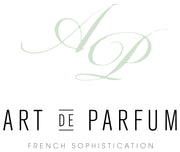Increasingly, consumers are worried about the impact of their buying decisions on the environment and the welfare of animals. But they are also overwhelmed with information on how to make ethical buying choices.
Art de Parfum is a company that places ethics at the heart of its operations, thus making it easy for customers to choose with confidence. All Art de Parfum fragrances are 100% cruelty-free, environmentally-friendly, and free of materials that add to third world exploitation.

Ruta Degutyte, the brand’s CEO, is uncompromising on the issue of ethics and environment. Having spent years as an international marketing consultant for several global brands, she decided to make ethics a core value of her new brand. The Art de Parfum Code of Ethics specifies that:
-
(i) All fragrances are 100% cruelty-free
-
(ii) All raw materials and packaging are environmentally safe
-
(iii) The company does not use GMO-related products or raw materials
-
(iv) All fragrances are free of nano-particles*
-
(v) The company will use only raw materials that do not harm the economic interests or physical safety of indigenous hunters and farmers in third world countries.
All the materials used in the packaging and bottles are environmentally-safe. Natural materials of organic origin have been used where possible - the cap is made from sustainably-planted wood, and the bottle is 100% recyclable glass. Everything comes with certificates of origin for green and bio- hazard-free production. The box carrying the perfume is made of a natural, linen-covered cardboard material that biodegrades fully.
Art de Parfum’s does not use any raw materials of animal origin, such as ambergris, the rare secretion from the sperm whale that adds a salty glow to perfume and increases longevity. Ambergris is protected under CITES, the Convention on International Trade in Endangered Species, and although it is legal to use, it is difficult to guarantee that natural ambergris has been obtained in a legal, ethically-clean, and cruelty-free manner (beach-cast rather than harvested from the intestine of a beached whale). Therefore, the brand uses a synthetic replacement derived from sage called Ambroxan that gives a similar effect to natural ambergris.
Similarly, the brand does not use raw materials that may endanger the livelihood or physical safety of farmers in third world countries. A good example is oud, a material that gives a wonderfully smoky, deep, woodsy tone to perfumes. Oud wood is a naturally-occurring resin in Aquilaria trees in South East Asia but the trees are now endangered and the process of harvesting resinated wood in the deep jungle is hazardous for local hunters, a number of whom are killed each year.
The only way to guarantee that the oud oil used in perfumery has not harmed the local economic interests or physical safety of indigenous farmers and hunters is to source it from an ethically- managed plantation. Until Art de Parfum can safely guarantee such a supply source, it will continue to use a plant-derived oil called cypriol, which replaces some of the woody, smoky nuances of oud oil from wild Aquilaria trees.
People choosing Art de Parfum fragrances over those of another brand can rest safe in the knowledge that their choice is both beautiful and ethically-pure. No animals were hurt to make the perfume, no local hunters or farmers were threatened, maimed, or killed, and when the customer has finished the fragrance, its box and bottle will all degrade naturally, leaving no harmful imprint on the environment.
All Art de Parfum fragrances can be purchased directly through the website at www.artdeparfum.com, and shipping is free to all UK mainland addresses. The Art de Parfum fragrances are all extraits de parfum (20-40% concentrated perfume oils).
Art de Parfum is a London-based fine fragrance company that sells its products worldwide; the fragrances themselves are 100% made in France.
* Although modern science is not yet clear on the extent to which nano-particles may be harmful to human health, some claim that nano-particles in cosmetics and perfumes increase sensitivity to UV rays and thus contribute to lung damage, DNA damage, cell toxicity, and even birth defects. Art de Parfum will continue to keep their products nano-particle-free until scientists prove conclusively that they do not cause any damage to humans, plant life, or water sources
